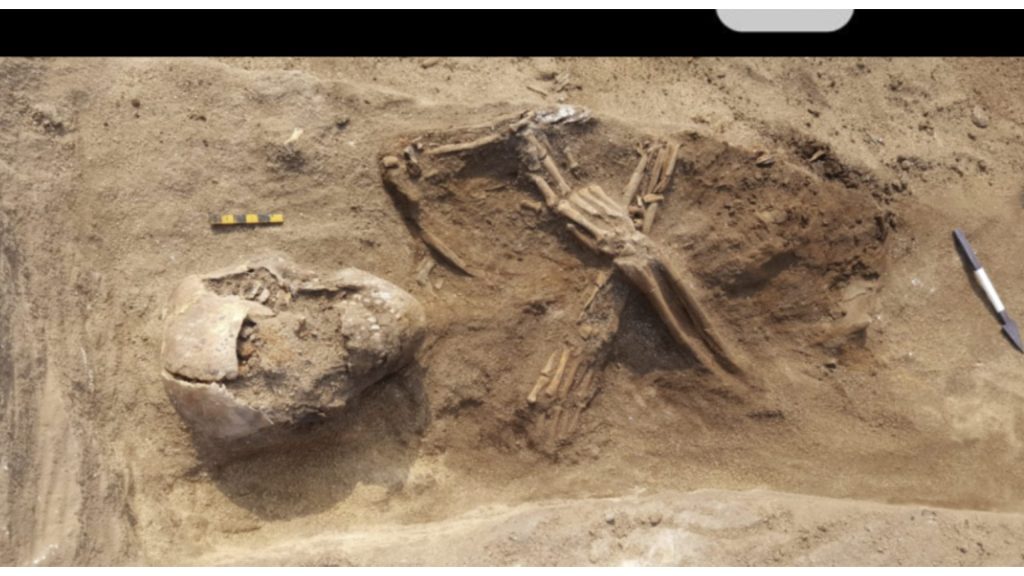Sharjah Archaeology Authority (SAA), recently organized a virtual lecture titled “Archaeology and its importance between theory and practice,” with the intention of bringing together specialists within the field to share their knowledge and experience. The lecture was moderated by Dr Ahmed Hefni Al-Badwani and attended by over 150 participants, interested to know more about building and monument restoration. At the end of lecture, participants were awarded and electronic certificate for attendance.
During the lecture, Dr Badawi provided an insight into the importance of archaeological findings, the history of the emergence of archaeology, along with methods to understand archaeological findings. He also focused on certain sites, the various tools and their role in excavation and the techniques of documenting and recording findings.
The lecture commenced with a focus on the emergence of archaeology. “It is important to be fully acquainted with the eras that have passed us. Contrary to the regular belief that excavations are carried out to obtain valuable antiquities or beautiful artifacts, the truth is excavation were carried out to extract antiquities, record the descriptions of these unique findings and access the significance of these monuments. The aim is to shed light on the past human civilization and understand its vast history,” Dr Badawi said.
He spoke about the Pharaonic era, which flourished in the reign of the Egyptian Pharaoh- Djoser, who searched for the tombs of his ancestors and that of Thutmose IV- 8th Pharaoh of the 18th Dynasty of Egypt. Ibn Ramses II took care of the cemeteries in Memphis, and the travelers and historians Greece and Romans such as Manitone, Strabon, Plutarch and Herodotus. He highlighted the Islamic era, when Muslims began digging Archaeological sites since the time of the Prophet, “may God bless him and grant him peace,” including digging the tomb of “Abu Raghal” who is the father of the Thaqeef tribe and extracted from it a column of gold that the Prophet, may God bless him and grant him peace, told them that he was buried with him.
The lecture shed light on the modern era, when certain wealthy Europeans studies and collected artifacts, and were eager to discover primitive stone tools making archaeology an independent field of study in the mid-19th century. Around the same time, British Archaeologist and Egyptologist, Howard Carter discovered the tomb of Tutankhamun, arousing public interest in learning more about Egyptian antiquities.
Speaking about excavation missions, Dr Badwani said, an excavation mission is usually led by the head of the mission- typically a scientist specializing in archaeology. He is the first person in charge of the mission, and the one who proposes the site, and selects specialized archaeologists and their assistants to participate in the mission. The head ensures that all necessary items to conduct the excavation are taken including tools, maps and others. Arrangements are also made to take photographs and record all details as witnessed on the site.
Sharjah Archaeology Authority provides a platform to learn about the various aspects regarding the preservation of the local archaeological and heritage components, to align with the values and stature of the Emirate of Sharjah. They constantly apply a systematic work approach, in accordance with the latest international practices and pioneering standards, to ensure sustainability in preserving archaeological heritage for future generations to know.

Sharjah Archaeology Authority organizes virtual lecture discussing various theoretical and practical aspects of Archaeology
In a new cultural achievement for the Emirate of Sharjah Sharjah Archaeology Authority announces the inscription of ," Dibba Al Hisn Fort," "Fili Fortand "Wadi ... Read More
Sharjah Archaeology Authority organized today, 15/6/2020, a remote lecture through Zoom program, entitled: “The documentary value of images of Islamic manuscripts in the fields of ... Read More
Sharjah Archaeology Authority has concluded its participation in the activities of the Emirates Innovation Month in Sharjah, which was held at Sharjah Book Authority headquarters ... Read More



